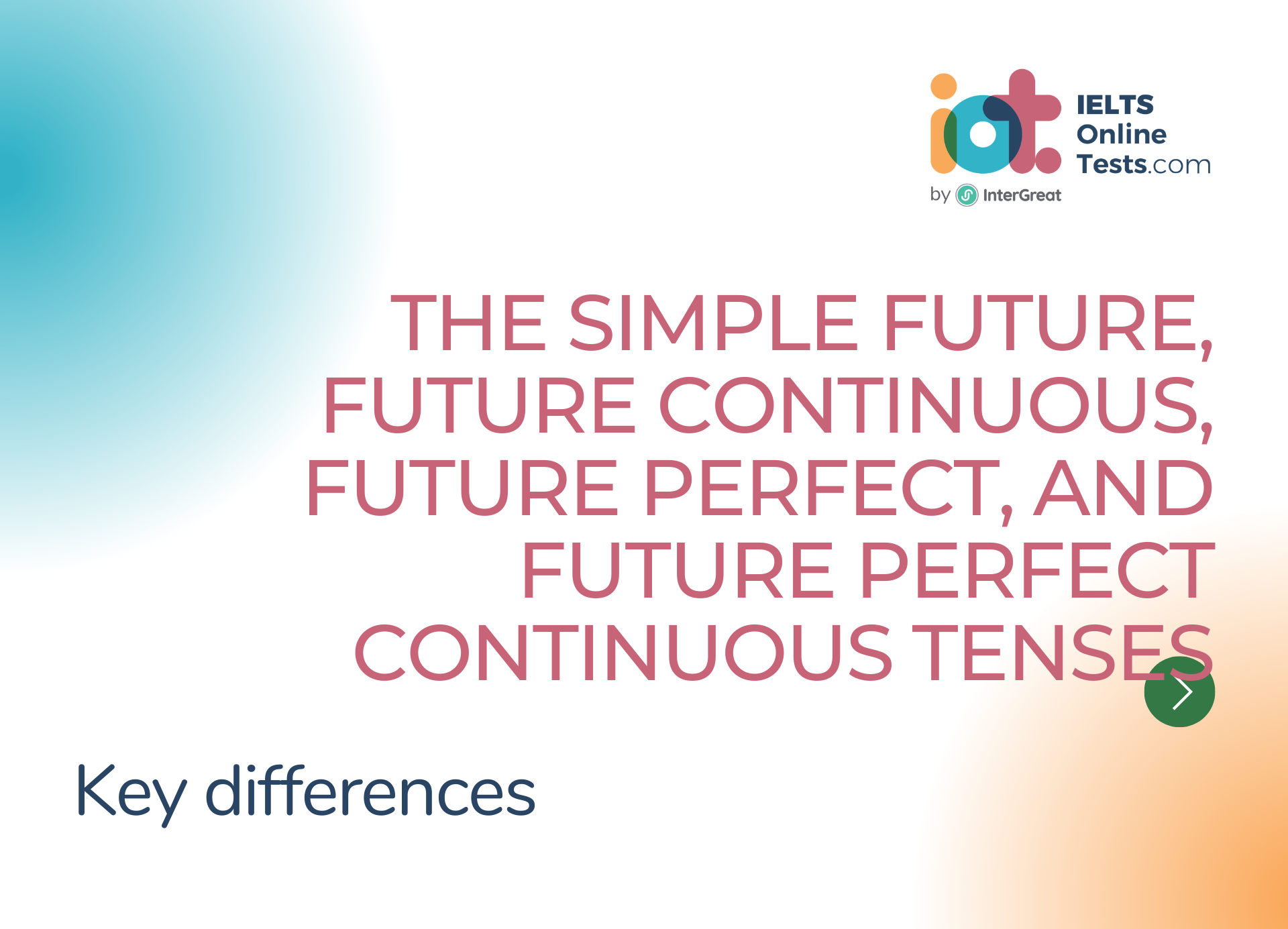
Key differences between the simple future, future continuous, future perfect, and future perfect continuous tenses
Here's a comparison between the simple future, future continuous, future perfect, and future perfect continuous tenses:
Simple Future Tense:
- Used to describe actions or events that will happen at a later time or in the future.
- Indicates a simple statement or prediction about the future.
- Uses the auxiliary verb "will" + base form of the verb.
- Example:
- "I will travel to Paris next week."
Future Continuous Tense:
- Used to describe actions or events that will be in progress at a specific time or during a specific period in the future.
- Indicates the ongoing nature of an action in the future.
- Uses the auxiliary verb "will be" + present participle (-ing form) of the main verb.
- Example:
- "I will be studying for my exam tomorrow evening."
Future Perfect Tense:
- Used to describe actions or events that will be completed before a specific future time or reference point.
- Indicates the completion of an action or event before another future action or moment.
- Uses the auxiliary verb "will have" + past participle of the main verb.
- Example:
- "By next year, I will have graduated from university."
Future Perfect Continuous Tense:
- Used to describe ongoing actions or events that will be in progress and will have a duration leading up to a specific future time or reference point.
- Indicates the continuous duration of an action or event before another future action or moment.
- Uses the auxiliary verb "will have been" + present participle (-ing form) of the main verb.
- Example:
- "By the time you arrive, I will have been waiting for two hours."
KEY DIFFERENCES:
- Simple Statement vs. Ongoing Action:
- Simple Future: Describes a simple statement or prediction about the future.
- Future Continuous: Describes ongoing actions or events in the future.
- Completion vs. Ongoing Action:
- Future Perfect: Indicates the completion of an action or event before another future action or moment.
- Future Perfect Continuous: Indicates the ongoing duration of an action or event before another future action or moment.
- Verb Structure:
- Simple Future: Uses the auxiliary verb "will" + base form of the verb.
- Future Continuous: Uses the auxiliary verb "will be" + present participle (-ing form) of the main verb.
- Future Perfect: Uses the auxiliary verb "will have" + past participle of the main verb.
- Future Perfect Continuous: Uses the auxiliary verb "will have been" + present participle (-ing form) of the main verb.
- Usage:
- Simple Future: Used to talk about actions or events that will happen in the future.
- Future Continuous: Used to describe ongoing actions or events that will be in progress at a specific time in the future.
- Future Perfect: Used to describe actions or events that will be completed before a specific future time or reference point.
- Future Perfect Continuous: Used to describe ongoing actions or events that will have a duration leading up to a specific future time or reference point.
The choice of tense depends on the specific context and the intended meaning you want to convey about actions or events in the future.




